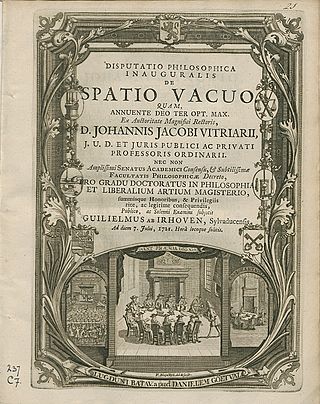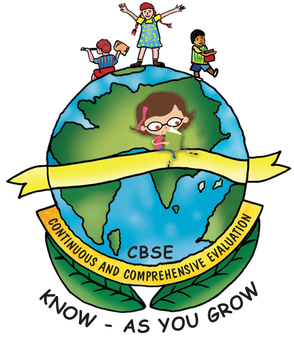
The University of Redlands is a private university headquartered in Redlands, California. The university's main, residential campus is situated on 160 acres near downtown Redlands. An additional eight regional locations throughout California largely provide programs for working adults.

A thesis, or dissertation, is a document submitted in support of candidature for an academic degree or professional qualification presenting the author's research and findings. In some contexts, the word thesis or a cognate is used for part of a bachelor's or master's course, while dissertation is normally applied to a doctorate. This is the typical arrangement in American English. In other contexts, such as within most institutions of the United Kingdom and Republic of Ireland, the reverse is true. The term graduate thesis is sometimes used to refer to both master's theses and doctoral dissertations.
Fairhaven College of Interdisciplinary Studies is an interdisciplinary liberal arts college at Western Washington University. Instead of completing the general education requirements at Western, students take interdisciplinary classes at Fairhaven, which aim to cover the same breadth and depth of subjects, but within small, interdisciplinary seminars. When it comes time to move onto "concentrated studies," students have the option of pursuing any of the majors or minors offered by Western Washington University, but may also choose to shape their own interdisciplinary concentration or major, combining independent study, internships, and Western Washington University courses with Fairhaven courses to define their course of study. Another unique feature of the college: nearly all classes follow a small seminar format rather than a large lecture format. Class enrollment is rarely above twenty students and will sometimes have two professors for a given class instead of only one. Fairhaven students do not receive letter grades; instead, they are given narrative evaluations, in addition to writing their own self-evaluations, for each class.

In education, a curriculum is broadly defined as the totality of student experiences that occur in the educational process. The term often refers specifically to a planned sequence of instruction, or to a view of the student's experiences in terms of the educator's or school's instructional goals. A curriculum may incorporate the planned interaction of pupils with instructional content, materials, resources, and processes for evaluating the attainment of educational objectives. Curricula are split into several categories: the explicit, the implicit, the excluded, and the extracurricular.
A course credit is a measure of the size of an educational course, often used to determine whether the requirements for an award have been met, to facilitate transfer between institutions, or to enhance intercomparability of qualifications. Credit may be input-based – defined by the quantity of instruction given – or outcome-based – defined by the learning outcomes and a notional time to achieve those outcomes.
The International Baccalaureate Diploma Programme (IBDP) is a two-year educational programme primarily aimed at 16-to-19-year-olds in 140 countries around the world. The programme provides an internationally accepted qualification for entry into higher education and is recognized by many universities worldwide. It was developed in the early-to-mid-1960s in Geneva, Switzerland, by a group of international educators. After a six-year pilot programme that ended in 1975, a bilingual diploma was established.
The Group 3: Individuals and societies subjects of the IB Diploma Programme consist of ten courses offered at both the Standard level (SL) and Higher level (HL): Business Management, Economics, Geography, Global Politics, History, Information technology in a global society (ITGS), Philosophy, Psychology, Social and cultural anthropology, and World religions. There is also a transdisciplinary course, Environmental systems and societies, that satisfies Diploma requirements for Groups 3 and 4.
The Group 1: Studies in language and literature subjects of the IB Diploma Programme refer to the student's first language. Three courses are available: Language A: literature, Language A: language and literature and an interdisciplinary subject, Literature and performance. Students who complete two group 1 subjects, or complete a group 3 or 4 subject that is of a different language of the group 1 subject taken by the candidate, are eligible to be awarded a bilingual IB Diploma on the condition that the candidate obtains a level 3 or greater in both subjects.
In higher education, a course is a unit of teaching that typically lasts one academic term, is led by one or more instructors, and has a fixed roster of students. A course usually covers an individual subject. Courses generally have a fixed program of sessions every week during the term, called lessons or classes. Students may receive a grade and academic credit after completion of the course. Courses can either be compulsory material or "elective". An elective is usually not a required course, but there are a certain number of non-specific electives that are required for certain majors. The entire collection of courses required to complete an academic degree is called a program of studies.
In education, narrative evaluation is a form of performance measurement and feedback which can be used as an alternative or supplement to grading. Narrative evaluations generally consist of several paragraphs of written text about a student's individual performance and course work. The style and form of narrative evaluations vary significantly among the educational institutions using them, and they are sometimes combined with other performance metrics, including letter and number grades and pass/fail designations.
The Western Australian Certificate of Education (WACE) is the credential awarded to students who have completed senior secondary education in the state of Western Australia. It is the Western Australian graduation certificate of the Australian Senior Secondary Certificate of Education. Students are required to meet various breadth and depth requirements, achievement standards and literacy and numeracy standards across their final years of schooling. As of the 2020 WACE, there are 106 courses available for students to study. Many WACE students are awarded an Australian Tertiary Admission Rank (ATAR), summarising their results across all areas of study into one ranking for the purposes of university admission. Students may choose from ATAR courses, which count directly towards their ATAR, Vocational Education and Training courses, which are more practical courses and can lead to further vocational opportunities, and, from 2021, General courses, which provide pathways to university, employment, or further vocational education and training. From 2010, the WACE replaced the Tertiary Entrance Exam (TEE), as the standard academic examination for school leavers in Western Australia.
Transfer credit, credit transfer, and advanced standing are the terms used by colleges and universities for the procedure of granting credit to a student for educational experiences or courses undertaken at another institution. This is a subset of recognition of prior learning.
Contract grading is a form of grading which results from cooperation between an instructor and their student(s), and entails completion of a contracted number of assignments of specified quality that correspond to specific letter grades. These contracts often contain the following two characteristics: First, there are no finite amount of, say, "A" grades given in the class. Any student who completes the work that corresponds to a "B" grade will receive a "B". The second characteristic is that instructors and students know exactly what is expected from them to receive a certain letter grade. Contract grading may be contrasted with other grading methods such as grading on a curve or percentile systems. These curve and percentile systems include the Common Curve, Missouri Curve, and The Gaussian Curve. Grading on these curves creates an expectation that the number of "A"s and "B"s should correspond to the number of "D"s and "F"s, with the majority of students receiving a "C". In the 2010s, contract grading was discussed and promoted as a method to respond to racism within academia and, more specifically, writing in academia. Asao Inoue, a large contributor to this topic, wrote in his book Labor-Based Grading Contracts: Building Equity and Inclusion in the Compassionate Writing Classroom, "Designing fair and meaningful grading practices is about cultivating with our students an ecology, a place where every student, no matter where they come from or how they speak or write, can have access to the entire range of final course grades possible."

The Bossey Ecumenical Institute is the ecumenical institute of the World Council of Churches. It was founded in 1946. The dean of the Institute is the Rev. Dr Simone Sinn. Degrees and other academic awards are accredited by the University of Geneva.
A graduate certificate is an educational credential representing completion of specialized training at the college or university level. A graduate certificate can be awarded by universities upon completion of certain coursework indicating mastering of a specific subject area. Graduate certificates represent training at different levels in different countries, for example a graduate certificate is at master's degree level in Ireland, but is at a bachelor's degree level in the United Kingdom. In both cases, the graduate certificate represents less work than a degree at the same level.
The A level, is a main school leaving qualification of the General Certificate of Education in England, Wales, Northern Ireland, the Channel Islands and the Isle of Man. It is available as an alternative qualification in other countries, where it is similarly known as an A-Level.

Continuous and Comprehensive Evaluation (CCE) was a process of assessment, mandated by the Right to Education Act, of India in 2009. This approach to assessment was introduced by state governments in India, as well as by the Central Board of Secondary Education in India, for students of sixth to tenth grades and twelfth in some schools. It was intended to provide students with practice from a young age for the board exams. In 2017, the CCE system was cancelled for students appearing in the Class 10 Board Exam for 2017–18, bringing back compulsory Annual Board Exam and removing the Formative and Summative Assessments under the Remodeled Assessment Pattern.
The actuarial credentialing and exam process usually requires passing a rigorous series of professional examinations, most often taking several years in total, before one can become recognized as a credentialed actuary. In some countries, such as Denmark, most study takes place in a university setting. In others, such as the U.S., most study takes place during employment through a series of examinations. In the UK, and countries based on its process, there is a hybrid university-exam structure.
A student bill of rights is a document that outlines beliefs or regulations regarding student rights, typically adopted by a student group, school, or government. These documents can be policies, laws, or statements of belief.




